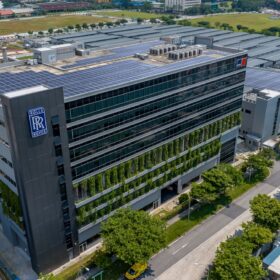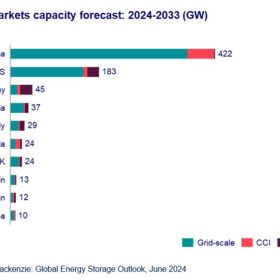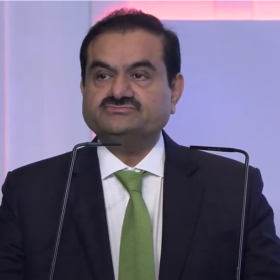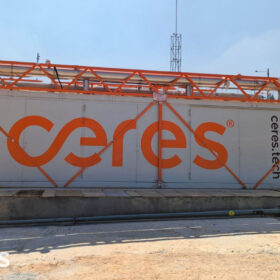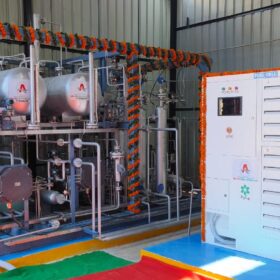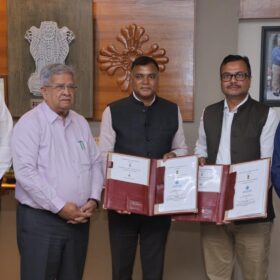Reliance obtains BIS certification for solar panels
Reliance Industries expects to commission its first train of solar module and cell manufacturing at Jamnagar within the current fiscal year.
The Hydrogen Stream: Rolls-Royce, TCS collaborate on hydrogen research programme
Tata Consultancy Services (TCS) has expanded its partnership with Rolls-Royce to research hydrogen fuel system technology for enabling use of hydrogen in aviation.
Global energy storage fleet to surpass 1 TW/3 TWh by 2033, WoodMac says
According to the latest forecast from Wood Mackenzie, the global energy storage market (excluding pumped hydro) is on track to reach 159 GW/358 GWh by the of 2024 and grow by more than 600% by 2033, with nearly 1 TW of new capacity expected to come online.
The Hydrogen Stream: India issues guidelines for funding of testing facilities under the National Green Hydrogen Mission
The funding scheme, with a total budgetary outlay of INR 200 crore till FY 2025-26, will support the development of robust quality and performance testing facilities to ensure quality, sustainability, and safety in green hydrogen production and trade.
IESW 2024 set for unveiling of major battery storage plans
India Energy Storage Alliance (IESA) is set to host its annual international conference and exhibition event, India Energy Storage Week (IESW), from July 1 to July 5, 2024, in New Delhi. The event is expected to witness the participation of 150+ key partners and exhibitors and 1000+ companies. Singapore-headquartered, VFlowTech will announce the launch of […]
Hydrogen power: Unlocking the next frontier in renewable energy
The hydrogen economy in India is expected to undergo vast development in the coming years owing to government support and industry funding.
The hydrogen stream: NTPC tenders for green hydrogen fuel cell locomotives
NTPC has invited bids for green hydrogen fuel cell locomotives for operation at the merry-go-round rail system of NTPC Sipat.
Adani Group to invest more than $100 billion in energy transition over the next decade
Next decade will see Adani Group invest more than $100 billion in the energy transition space and further expand its integrated renewable energy value chain—chairman Gautam Adani at CRISIL Ratings Annual Infrastructure Summit 2024.
The Hydrogen Stream: Shell awards 10 MW SOEC module contract to Ceres
Ceres Power Holdings has secured a contract to design a 10 MW pressurised solid oxide electrolyser (SOEC) module for use in large-scale industrial applications such as synthetic fuels, ammonia and green steel.
The Hydrogen Stream: Airox Nigen commissions indigenously built electrolyzer, fuel cell for SJVN’s multi-purpose green hydrogen project
Airox Nigen Equipments has commissioned its indigenously built alkaline electrolyzer and fuel cell for SJVN’s multi-purpose green hydrogen pilot project in Jhakri, Himachal Pradesh.

